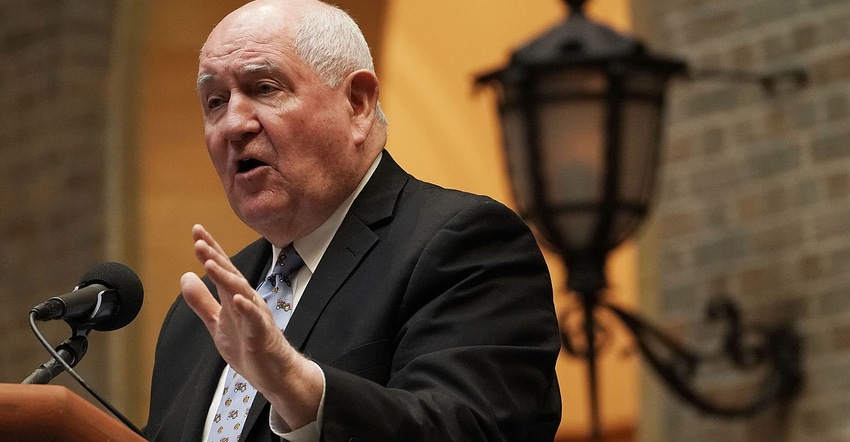December 24, 2018

Agriculture Secretary Sonny Perdue announced Dec. 20 a proposed rule intended to move able-bodied recipients of Supplemental Nutrition Assistance Program benefits to self-sufficiency.
“Long-term reliance on government assistance has never been part of the American dream,” Perdue said. “As we make benefits available to those who truly need them, we must also encourage participants to take proactive steps toward self-sufficiency. Moving people to work is common-sense policy, particularly at a time when the unemployment rate is at a generational low.”
Stricter work requirements were included in the House version of the Farm Bill and supported by President Trump, but they did not make it to the final version of the bill signed by the president Dec. 21.
Sen. Debbie Stabenow, ranking member of the Senate Agriculture Committee, took issue with the proposed rule.
“This regulation blatantly ignores the bipartisan Farm Bill that the President is signing today and disregards over 20 years of history giving states flexibility to request waivers based on local job conditions. I expect the rule will face significant opposition and legal challenges,” Stabenow said. “Administrative changes should not be driven by ideology. I do not support unilateral and unjustified changes that would take food away from families.”
Sen. Pat Roberts, R-Kansas, chairman of the Senate Agriculture Committee, expressed support for the rule change.
“Though the SNAP program currently has work requirements that most states enforce, it makes sense to review the process used by states for exemption from these work requirements, so states who request a waiver are using the same criteria as states like Kansas, which does not have a waiver,” Roberts said. “This is complimentary to the Farm Bill we just passed which included measures to engage the business community and to increase the accountability of SNAP employment and training so people can learn the skills needed in the workforce.”
Currently, able-bodied adults without dependents, known by the acronym ABAWDs, must work or participate in an employment program for 20 hours a week to continue to receive benefits for more than three months, according to Forbes. State waivers, available in seven states, and partial waivers, available in 29 states, can allow people to receive benefits without working in times of bad economic conditions.
The Trump administration proposal would limit the duration of waivers and ensure they are no longer available in times of low unemployment.
Proposed changes would define “a lack of sufficient jobs” as 7% unemployment and would limit waivers to one year, according to Newsweek. Statewide waivers would no longer be available. About 75% of areas that now qualify for waivers would no longer be eligible.
About 755,000 Americans may be impacted by the proposed changes, PBS reports.
The new rule will be published in the federal register and will be open for public comment for 60 days.
Source: USDA, Office of Sen. Debbie Stabenow, Office of Sen. Pat Roberts
You May Also Like




